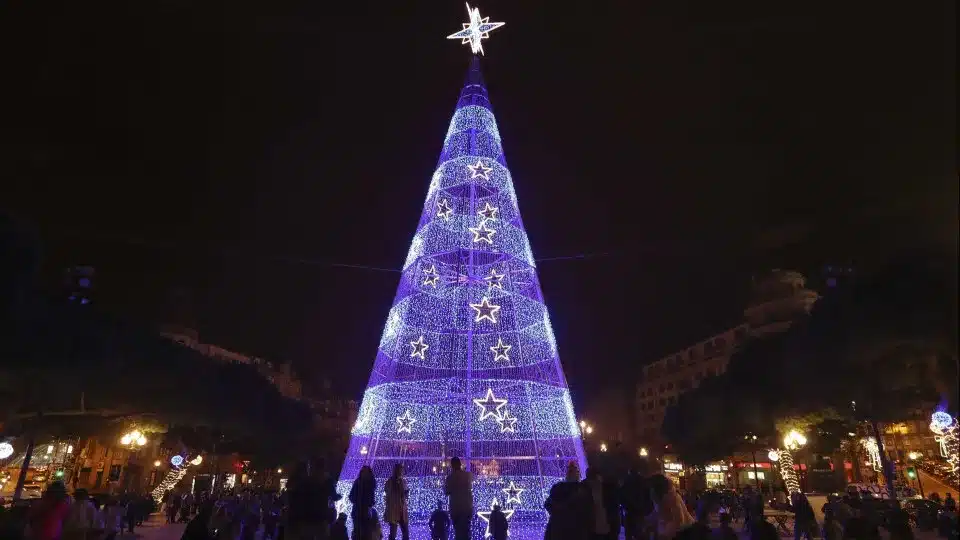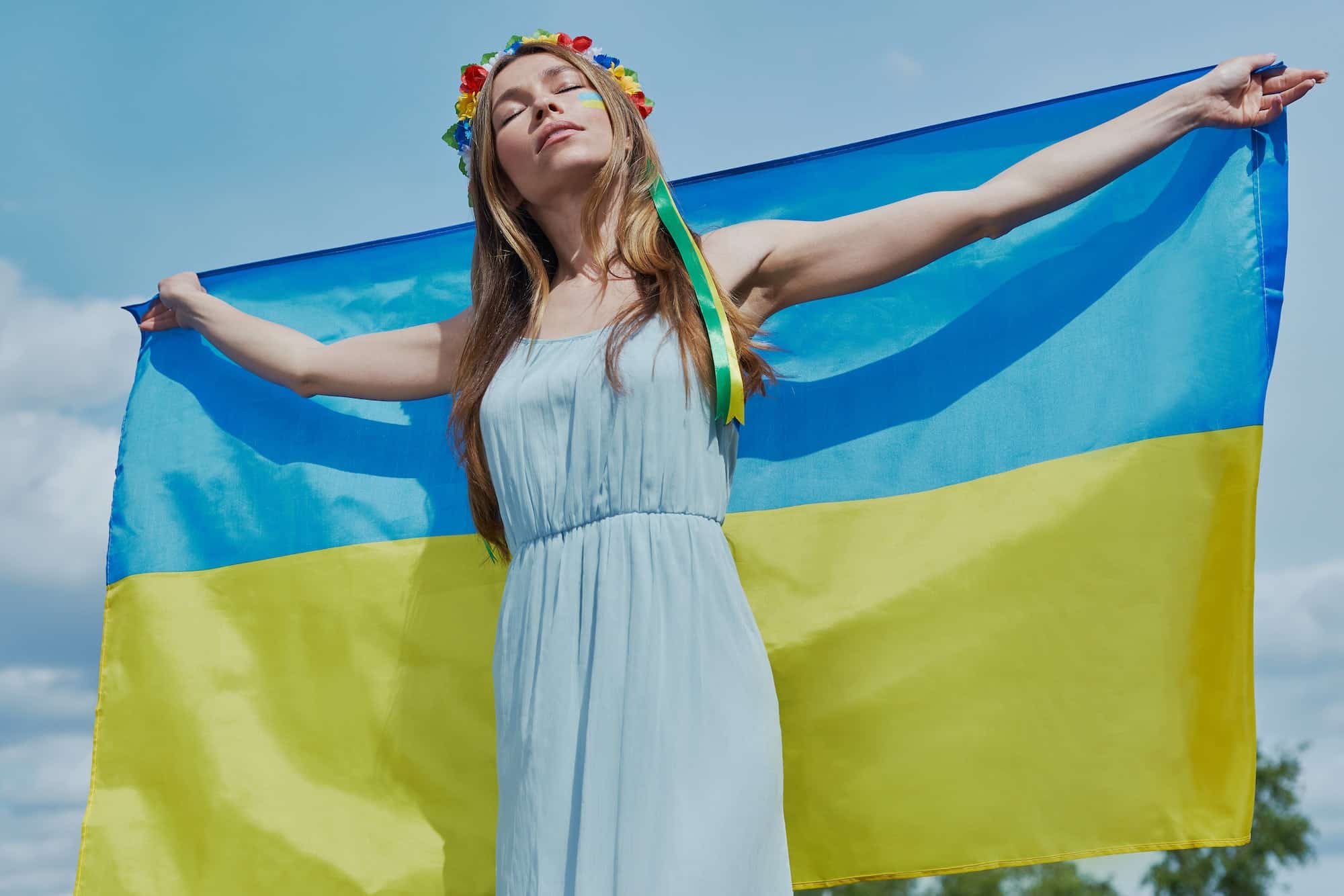Dozens of people, most of them Ukrainian, walked down Lisbon’s Avenida da Liberdade today to thank Portugal for its support since the beginning of the Russian invasion of Ukraine a year and a half ago and to call for an end to the war.
On the day that Ukraine marks the 32nd anniversary of its independence and Portuguese President Marcelo Rebelo de Sousa ends a visit to Kiev, the evening rally in Lisbon, marked by the national colors yellow and blue – which also took place in Porto – joined an international initiative in several cities around the world.
“Our theme today, not only in Portugal, but all over the world, is to thank all the peoples and all the governments that are standing together with Ukraine, defending our people and our territory from the aggressor,” Pavlo Sadokha, president of the Association of Ukrainians in Portugal, told journalists in front of a 30-meter Ukrainian flag at the head of the parade.
The leader of the Ukrainian community highlighted the importance of this date, which coincides with a year and a half of conflict, and reminds the community of all the compatriots who remain in their country of origin, relatives, friends and those who are fighting against the Russian invasion, making them believe in victory, which would not be possible “without the support of the democratic world”.
This hope, he said, was also expressed by Marcelo Rebelo de Sousa in Kiev, and even if Ukraine asks for more help from the allies, which was also evident in the demonstrations of the parade participants, there will be a post-war phase of reconstruction in which “everyone has to help” a country that aspires to be a member state of the European Union.
“We’re in Europe, we’re at the heart of Europe, we have a European culture, we’re part of this Europe, we’ve been defending this Europe for centuries, even from Nazism and fascism, so there’s no other way,” he said.
According to the latest official figures, Portugal has 56,000 Ukrainian refugees and, since the Russian invasion that began on February 24 last year, only 4,000 haven’t renewed their host status permit, “not because they haven’t found work and living conditions here,” or support from the government and Portuguese society, according to the association’s president, but because “it’s very difficult to have families separated and that’s the main reason”.
With her son on her lap, Tanya, 34, wore the colors of her country in the parade, where she left her husband and the rest of her family about a year ago, after the Russian forces had left the vicinity of the capital, but continued their air raids.
“It was so noisy with the bombs passing overhead that we made the decision to leave and we are very grateful to Portugal. We feel safe here and believe that one day we will return. Our hearts are always there,” the refugee, who is still without a job, said in English, describing the host country as “very good, with very friendly people and a very beautiful nature”.
Amid slogans in Ukrainian with the slogan “glory to Ukraine, glory to the heroes” and in Portuguese “thank you Portugal”, the participants, many of whom were young women in traditional white clothing – joined by some Portuguese and the vice-president of the Liberal Initiative (IL) Angelique da Teresa – also carried placards with words calling for peace or describing Russia as a “terrorist state”.
“Thank you Portugal” was precisely the summary message that Olga, 38, a Ukrainian from Kiev, painted on a piece of card, in green and red, for the support during “these very difficult and sacrificial times for Ukraine”, which she couldn’t get out of “without the support of Portuguese friends and other democratic countries in the world”, but which must continue.
Olga managed to escape the war twice, first in 2012 in her hometown of Donetsk, in the east of the country, two years before the pro-Russian uprising broke out in the Donbass region, and then in Kiev in 2022, six months before the Russian invasion, when she joined her Portuguese partner in Carcavelos, Cascais, where she is a programmer and is joined by her mother, who has since fled the war.
He hasn’t been able to return to Donetsk, now occupied by Russian forces, for 12 years, and has been back to Kiev twice, most recently in May, describing, in Portuguese, a “very serious” situation in his country, even in the capital, which remains far from the front, but is frequently hit by air strikes he can’t describe.
Kyril, 33, and his girlfriend, Anastasia, 25, are also unable to return to their town, Kherson, in the south of the country, which was one of the first to fall to the Russian invasion.
“I woke up to the explosions and at the end of the night we packed everything we could into the car, I picked up my parents and my girlfriend, the cats, when the Russians were on the outskirts of the city, a disaster,” he recalled.
The couple moved to Spain, and Kyril was allowed to leave Ukraine, which prevents men of military age from leaving, because he is a sailor and didn’t have the job he has now found in the Alicante region.
Although Kherson was retaken by Ukrainian forces in December, the region continues to be the scene of fierce fighting and is one of the starting points of the counter-offensive against Russian troops since June, so a return is not an option.
In Lisbon, where they are on vacation, Kyril and Anastasia found a “good city for refugees and a previous community that helps them”, and more support from the Portuguese in Kiev than in Spain, and they are considering moving until the victory they believe in arrives, albeit at the cost of “many victims”, and the return to the historic borders of 1991 that they celebrated today.
The parade ended in Rossio Square, where the exhibition “Children of Ukraine, children of the world” was inaugurated.



